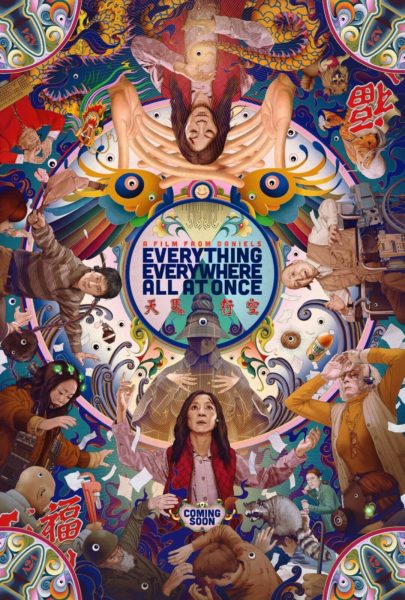 It’s impossible to miss the increase in Asian and Asian American representation. This year, Everything Everywhere all at Once and its actors won a number of Golden Globe awards and received several Oscar award nominations. In the past few years, movies such as Minari and Parasite have won numerous awards including Parasite’s Best Picture Academy award. The 2021 book Crying in H-Mart was a best seller, and Kyla Zhao, who wrote The Fraud Squad when she was a junior at Stanford, scored a six figure advance for the story about a social climber in Singapore. Asian and Asian American representation in mainstream media has clearly increased, with many other movies, TV shows, and books that I could have mentioned, but what are the limitations of this apparent success?
It’s impossible to miss the increase in Asian and Asian American representation. This year, Everything Everywhere all at Once and its actors won a number of Golden Globe awards and received several Oscar award nominations. In the past few years, movies such as Minari and Parasite have won numerous awards including Parasite’s Best Picture Academy award. The 2021 book Crying in H-Mart was a best seller, and Kyla Zhao, who wrote The Fraud Squad when she was a junior at Stanford, scored a six figure advance for the story about a social climber in Singapore. Asian and Asian American representation in mainstream media has clearly increased, with many other movies, TV shows, and books that I could have mentioned, but what are the limitations of this apparent success?
Before talking about any limitations, it should be clear that this is a beneficial trend. One clear benefit is to simply get Asian American stories out there. I rarely saw any movies about Asian Americans when I was growing up, and the ones that I did see were usually full of stereotypes. Each Asian American movie, book, and TV show success is a demonstration that a movie, book, or TV show with Asian Americans in them can be profitable and garner wide, not just Asian audiences, thus increasing the opportunities for Asian American actors, writers, and directors.
Still, as this Mercury News article points out, there are limits to the increased representation that is often touted. It cites a PEN study that says that writers of color are still published at a lower rate. Zhao received suggestions from publishers, which she successfully resisted, to put in a white character into her book to make it more “relatable.” Other writers suggest that with the success of Crazy Rich Asians, there might be an emphasis on old money Chinese elites. Zhao acknowledges this. While her book is also set in Singapore, she put in characters from different social classes.
Izzy Ampil writes in Buzzfeed that touting the numbers of awards and nominations by Asians and Americans reduces the significance and individual accomplishments of every the actors, writers, and directors that are nominated. I think that this is very true. While an emphasis on the numbers, I feel that we forget the individual work. For example, it seems to me the fact that Turning Red is nominated for an academy award seems to have been gone relatively unnoticed.
A final limitation is knowing how much of this increase helps the Asian Asian community at large. I hope that the steadily appearing amount of Asian American representation in movies, TV, and books erodes the perpetual foreigner stereotype of Asian Americans, but if it having an affect, it is hard to measure. In the face of violence, both from anti-Asian sentiment that grew during the pandemic and from within Asian American communities, it’s not at all clear how representation helps in that area.
The 2023 Academy Awards air on March 12. Even more Asian American content with Asian American representation is coming this year, including American Born Chinese series on coming to Disney+, which has many of the same cast as Everything Everywhere all at Once.








